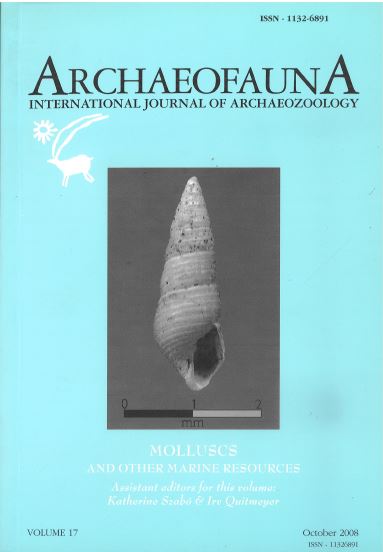Freshwater Mussel Remains from the Bilbo Basin Site, Mississippi, U.S.A.: Archaeological Considerations and Resource Management Implications
Keywords:
Freshwater Mussels (Family: Unionidae), Upper Mississippi River, Shellfish exploitation, Anthropogenic impact, Late Woodland Period, Mississippian PeriodAbstract
Analysis of an assemblage of freshwater mussel (Unionidae) shell from the Bilbo Basin site (22GE512) in south Mississippi, U.S.A., provided data on mussel biogeography, shell dissolution, and shellfish exploitation at a short-term prehistoric site. Silt-sensitive species are rare, presumably a result of mussel adaptation to streams with loose, sandy substrates. Virtually all the shells examined show extreme erosion of the umbo, a feature noted in modern specimens as well and likely attributable to breaching of the periostracum through sand abrasion and subsequent dissolution of the shell in the acidic waters of the Pascagoula River. A decrease in shell size over time shows that human predation had a significant effect on mussel populations over a relatively short time span.

